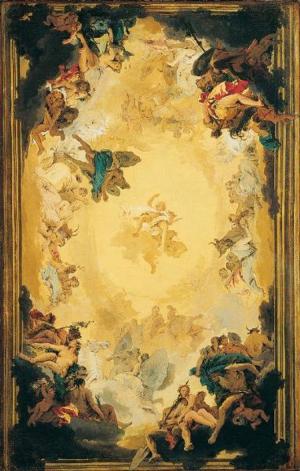The Quaint Companions With an Introduction by H. G. Wells
Nonfiction, Religion & Spirituality, New Age, History, Fiction & Literature| Author: | Leonard Merrick | ISBN: | 9781465583673 |
| Publisher: | Library of Alexandria | Publication: | March 8, 2015 |
| Imprint: | Language: | English |
| Author: | Leonard Merrick |
| ISBN: | 9781465583673 |
| Publisher: | Library of Alexandria |
| Publication: | March 8, 2015 |
| Imprint: | |
| Language: | English |
The chief fault of The Quaint Companions is that it ends. Mr. Merrick is no follower of the "well-made novel" school; he accepts his liberties as an English novelist, and this book has not only the beginning and middle and end of one story, but the beginning and some of the middle of another. The intelligent reader would be the gladder if it went on to that second end, and even then he might feel there was more to be said. For this book is about the tragedy of racial miscegenation. It is, perhaps, the most sympathetic and understanding novel, in its intimate everyday way, about the clash of colour and race-prejudice and racial quality that has ever been written in English, and its very merits make its limitation of length and scope the more regrettable. It is not a book to read alone. One should go from it to Le Chat Maigre of M. Anatole France; and good collaterals to it would be Mr. Archer's Through Afro-America and Mr. Hesketh Prichard's Where Black rules White. On the whole the strength of the book lies rather in the earlier part of it. Elisha Lee is the realest, most touching individuality in this little piebald group of second-rate humanity. He has, as the vulgar way of the studio puts it—guts. When he is hurt he swears, and the heart of the reader responds. David Lee is a weakling, diffusing a weakness over all the story of his development. The story loses spirit as he replaces his father. He is sensitive without strength, and expressive without pride. He writes. He wields what is ultimately the most powerful weapon a man can take into his hand, the pen. He has, we are told, the moving touch. What more is needed for pride and happiness? Apparently the normal gratification of a healthy guinea-pig. All Mr. Merrick's skill will not reconcile us to the pathos of David's disappointment at the loss of a pretty fool, or make us see in him and Bee anything more than two unreasonably despondent beings who have merely to look up to rejoice in the gifts of understanding they possess. This second story is not a tragedy, but a misunderstanding, and when Mr. Merrick should begin to elucidate that, when, indeed, he has just got to the gist of his enthralling subject and brought his Quaint Companions together, he sounds a short unjustifiable note of sentimentality—and ends.
The chief fault of The Quaint Companions is that it ends. Mr. Merrick is no follower of the "well-made novel" school; he accepts his liberties as an English novelist, and this book has not only the beginning and middle and end of one story, but the beginning and some of the middle of another. The intelligent reader would be the gladder if it went on to that second end, and even then he might feel there was more to be said. For this book is about the tragedy of racial miscegenation. It is, perhaps, the most sympathetic and understanding novel, in its intimate everyday way, about the clash of colour and race-prejudice and racial quality that has ever been written in English, and its very merits make its limitation of length and scope the more regrettable. It is not a book to read alone. One should go from it to Le Chat Maigre of M. Anatole France; and good collaterals to it would be Mr. Archer's Through Afro-America and Mr. Hesketh Prichard's Where Black rules White. On the whole the strength of the book lies rather in the earlier part of it. Elisha Lee is the realest, most touching individuality in this little piebald group of second-rate humanity. He has, as the vulgar way of the studio puts it—guts. When he is hurt he swears, and the heart of the reader responds. David Lee is a weakling, diffusing a weakness over all the story of his development. The story loses spirit as he replaces his father. He is sensitive without strength, and expressive without pride. He writes. He wields what is ultimately the most powerful weapon a man can take into his hand, the pen. He has, we are told, the moving touch. What more is needed for pride and happiness? Apparently the normal gratification of a healthy guinea-pig. All Mr. Merrick's skill will not reconcile us to the pathos of David's disappointment at the loss of a pretty fool, or make us see in him and Bee anything more than two unreasonably despondent beings who have merely to look up to rejoice in the gifts of understanding they possess. This second story is not a tragedy, but a misunderstanding, and when Mr. Merrick should begin to elucidate that, when, indeed, he has just got to the gist of his enthralling subject and brought his Quaint Companions together, he sounds a short unjustifiable note of sentimentality—and ends.















